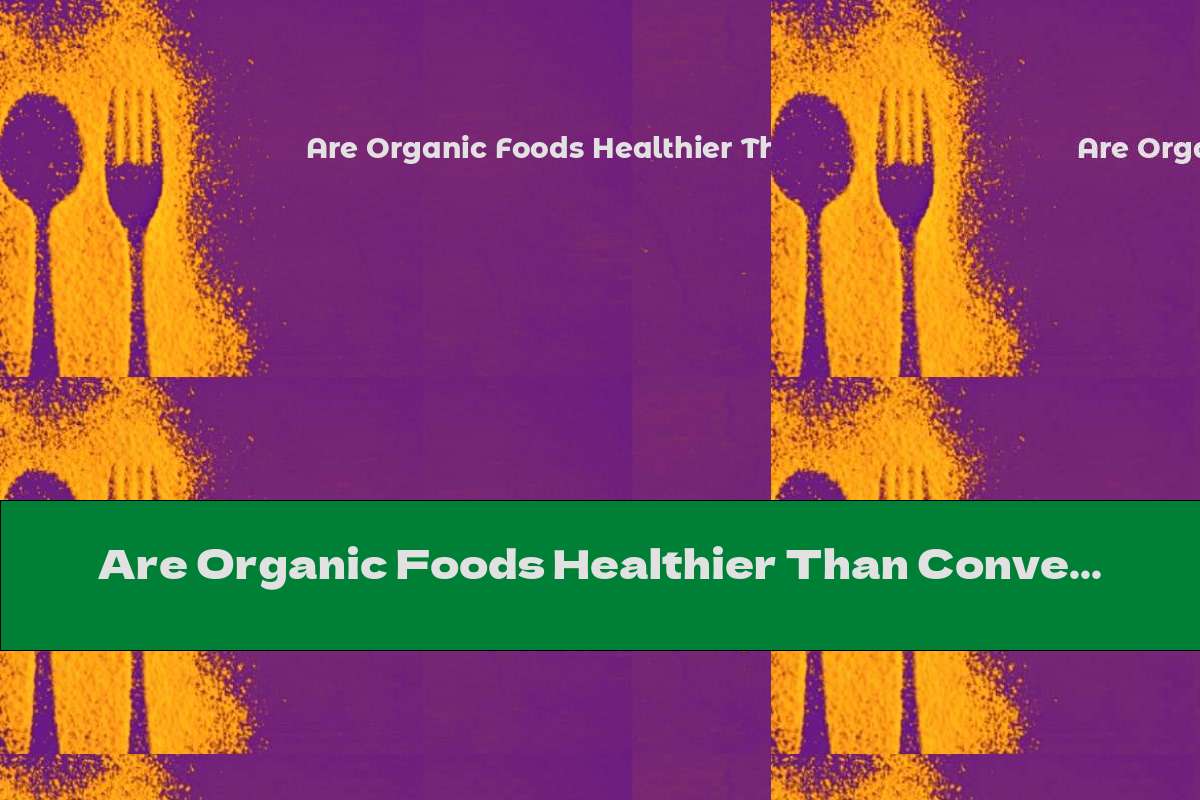Are Organic Foods Healthier Than Conventional Foods?
 Author: Victoria Aly
Time for reading: ~2
minutes
Last Updated:
February 17, 2026
Author: Victoria Aly
Time for reading: ~2
minutes
Last Updated:
February 17, 2026

It is difficult to draw unequivocal conclusions about whether organic foods are much healthier than conventional vegetables and fruits. However, organic processed foods often contain significantly fewer ingredients that have negative health effects than non-organic ones. Here are the benefits and strengths of organic food.
It is difficult to draw unequivocal conclusions about whether organic foods are much healthier than conventional vegetables and fruits . However, a new peer-reviewed study by the Environmental Working Group, which analyzed 80,000 foods , found that organic processed foods contain significantly fewer ingredients that have negative health effects than non-organic ones.
For your attention, the advantages and strengths of organic food .
Fewer pesticides
Each year, the Environmental Working Group releases its Buyer's Guide to Pesticides in Produce , which lists the conventionally grown fruits and vegetables that contain the most pesticides. It often includes apples, kale and strawberries.
Although the health benefits of eating fruits and vegetables , whether organic or not, far outweigh the risks associated with pesticide exposure, it's never a bad idea to limit your intake of foods that contain them.
Reducing exposure to pesticides is also important because they are associated with various health risks, such as cancer, hormone disruption, and impaired brain development in children. Switching to organic food is an effective way to reduce your exposure to pesticides.
However, this does not mean that organic products are completely free of impurities, they just contain less. One 2014 paper found that organic food contained 4 times less pesticide residue than conventional food.
Organic foods may contain more nutrients
Organic foods can be more nutritious than conventional foods. Reviews of many studies show that organic vegetables and fruits do contain more vitamin C, iron, magnesium, and phosphorus than their non-organic counterparts.
Although more evidence is emerging that organic food has greater health benefits, existing research is not very conclusive. However, if your income allows, it never hurts to choose organic products instead of conventional ones.
Organic foods can taste better
In terms of taste, you may notice that organic food has a slightly fresher and richer taste, especially if it is sourced from local farmers. This can be explained by the fact that local organic products often contain fewer preservatives than conventional products, which should have a longer shelf life. That is, usually it is simply explained by the fact that we buy organic products in a fresher state. Whether the food is organic or not, it will always taste best in season.
Organic farming is more environmentally friendly
Growing organic produce is generally better for the environment than conventional farming methods, as the absence of synthetic pesticides reduces pollution of the soil and nearby waterways, while increasing soil fertility and conserving water. Not to mention, organic farms typically use less energy than non-organic farms.
Eating enough fresh (or frozen) vegetables and fruits is more important than whether the food is organic or not. Organic foods can reduce the negative impact of pesticides, which can be more beneficial for health. They may contain more nutrients and taste better, but this may also depend on whether you buy local and seasonal fruits and vegetables .
Related Articles
- Nutrition for Respiratory Health: Supporting Your Lungs with the Right Foods
- The Ultimate Guide to High Gluten Foods: Benefits, Sources, and Recipes
- The Ultimate Guide to High Gluten Foods: Effects, Benefits, and Recipes
- Nutritional Benefits of Pizza: Key Nutrients, Healthier Options, and Recipes
- The Nutritional Value of Potato Chips: A Guide to Making Healthier Choices
Top Nutrition Articles Today
- . The Role of E249 in Nutrition: Health Effects, Safety, and A...
- . 7-day Diet With Eggs
- . The Power of Rye: Nutritional Benefits and Health Effects
- . Nutrition Trends for 2026: Superfoods, Recipes, and Balanced...
- . Granadilla - Health Benefits
- . How To Fillet Mackerel
- . Nutrition Trends 2026: Diet Plans, Recipes, and Wellness Tip...
- . How To Salt Nettles
- . Paradise Apple - Benefits And Harms To Health
- . The Benefits of Myra E: A Powerful Vitamin E Supplement